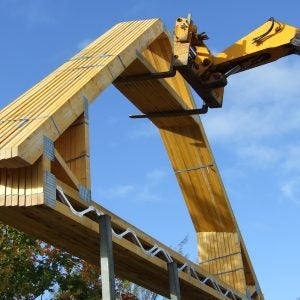The results, based on a survey conducted by ITTO’s Market Information Service (MIS), show that in Africa companies with forest certification allows them to be more resilient and more reactive because of the strong implementation of good practices being already put in place.
ITTO said in Cameroon wood industry companies continued to work but trade was becoming “more and more difficult”, with demand decreasing and competition very strong because of the different species present on the wood market.
“For example, while the production volume of sapele increases, the sale on the market is difficult because of the competition with other species,” it said.
In the Republic of Congo, the Ministry of Finance and Budget has developed and published customs, fiscal and financial measures to support businesses in the Congo, while the World Bank has announced funding of US$11.3m for an emergency response project against Covid-19.
ATIBT initiated a study to analyse the social and economic impact of COVID-19 on the forest-wood sector companies in Congo. Analysis from the first containment period – April 8 to 17 – showed CIB and Interholco were still working but with more difficulty for some enterprises in the South, with some of those enterprises’ administrative staff working from home finding it difficult to practically work.
The containment period was extended from April 21 for a further 20 days and companies in the South have put in place the necessary measures and are now operating according to the minimum authorised by the decree.
Impact in Gabon is similar to Cameroon. The Chinese market is picking-up but okoumé production is very low. Administrative procedures have been set up for containment measures (permit to go to work etc) but UFIAG has informed that Chinese-owned enterprises are stopping their activities even if the decree allows them to work.
The situation in China continues to improve and resumption of production has been carried out stably and orderly; demand for imported wood in China is rebounding gradually. However, the outbreak globally forced governments in many countries to take anti-measures like home office and border closure, affecting timber harvesting and transportation.
That, coupled with the fact that China domestic wood processing plants usually did not store much timber, has resulted in a rebound in price for about RMB100-200 per m3. Export demand is declining and foreign trade orders seriously reduced.
Imported wood scheduled to be processed in China for re-export are being converted to domestic sales or orders are being cancelled. It is estimated that China’s demand on imported wood will be reduced by 10-20%, as a result of shrinkage in exports.
Meanwhile, in North America the wood industry has been listed as ‘critical infrastructure force’ (US) and ‘necessary industry’ (Canada), with both still able to deliver normally. However, some factories in the US and Canada were closed or production being partially cut down due to the fall of domestic demand, for example, in the US a fall of 20-25% in April to May is predicted.
Ports in the north-eastern US are closed, while ports in south-eastern states such as North Carolina are still able to export timber normally.
According to ITTO partners, timber harvesting and exports in Germany, Finland, Sweden and Belarus are still proceeding normally.
In New Zealand a resumption to normal supply is expected by the end of April. In Russia, borders were closed on March 30 but goods are still allowed to be transported across border.
“In summary, although production in timber-producing areas has declined and their domestic demand has slowed down, only China’s demand is gradually picking up: timber export to China is not a problem in a short term,” ITTO said.






